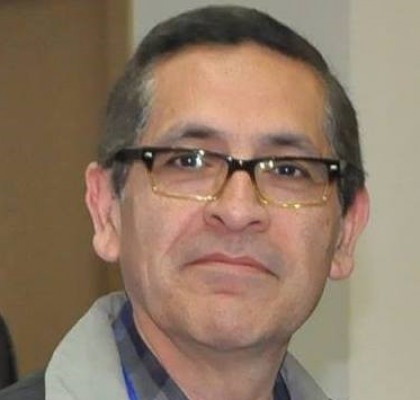
Tijuana Institute of Technology, Tijuana, México
Oscar Castillo holds the Doctor in Science degree (Doctor Habilitatus) in Computer Science from the Polish Academy of Sciences (with the Dissertation “Soft Computing and Fractal Theory for Intelligent Manufacturing”). He is a Professor of Computer Science in the Graduate Division, Tijuana Institute of Technology, Tijuana, Mexico. In addition, he is serving as Research Director of Computer Science and head of the research group on Hybrid Fuzzy Intelligent Systems. Currently, he is President of HAFSA (Hispanic American Fuzzy Systems Association) and Past President of IFSA (International Fuzzy Systems Association). Prof. Castillo is also Chair of the Mexican Chapter of the Computational Intelligence Society (IEEE). He also belongs to the Technical Committee on Fuzzy Systems of IEEE and to the Task Force on “Extensions to Type-1 Fuzzy Systems”. He is also a member of NAFIPS, IFSA and IEEE. He belongs to the Mexican Research System (SNI Level 3). His research interests are in Type-2 Fuzzy Logic, Fuzzy Control, Neuro-Fuzzy and Genetic-Fuzzy hybrid approaches. He has published over 300 journal papers, 10 authored books, 50 edited books, 300 papers in conference proceedings, and more than 300 chapters in edited books, in total more than 970 publications with h index of 78 according to Google Scholar. He has been Guest Editor of several successful Special Issues in the past, like in the following journals: Applied Soft Computing, Intelligent Systems, Information Sciences, Soft Computing, Non-Linear Studies, Fuzzy Sets and Systems, JAMRIS and Engineering Letters. He is currently Associate Editor of the Information Sciences Journal, Journal of Engineering Applications on Artificial Intelligence, International Journal of Fuzzy Systems, Journal of Complex and Intelligent Systems, Granular Computing Journal and Intelligent Systems Journal (Wiley). He was Associate Editor of Journal of Applied Soft Computing and IEEE Transactions on Fuzzy Systems. He has been elected IFSA Fellow in 2015 and MICAI Fellow in 2016. Finally, he recently received the Recognition as Highly Cited Researcher in 2017 and 2018 by Clarivate Analytics and Web of Science.
Abstract: Type-2 fuzzy systems are powerful intelligent models based on the theory of fuzzy sets, originally proposed by Prof. Zadeh. Most real-world applications up to now are based on type-1 fuzzy systems, which are built based on the original (type-1) fuzzy sets that extend the concept of classical sets. Type-2 fuzzy sets extend type-1 fuzzy sets by allowing the membership to be fuzzy, in this way allowing a higher level of uncertainty management. Even with the current successful applications of type-1 fuzzy systems, now several papers have shown that type-2 is able to outperform type-1 in control, pattern recognition, manufacturing and other areas. The key challenge in dealing with type-2 fuzzy models is that their design has a higher level of complexity, and in this regard the use of bio-inspired optimization techniques is of great help in finding the optimal structure and parameters of the type-2 fuzzy systems for particular applications, like in control, robotics, manufacturing and others. Methodologies for designing type-2 fuzzy systems using bio-inspired optimization in different areas of application are presented as illustration. In particular, we will cover Bee Colony Optimization, Particle Swarm Optimization, Gravitational Search and similar approaches to the optimization of fuzzy systems in control applications, robotics and pattern recognition. Finally, we will also consider using fuzzy logic for enhancing the performance of metaheuristics, where also good results have been achieved.